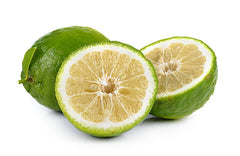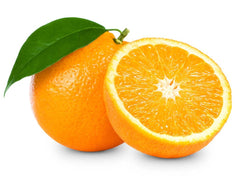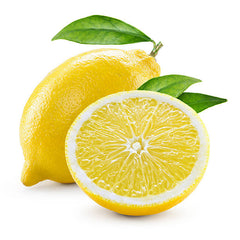What Does Argan Oil Smell Like?
Black Friday Fragrance Deals
Click For Affordable Inspired Perfume Alternatives

Embark on a fragrant journey to the arid landscapes of Morocco and discover the captivating aroma of argan oil. Extracted from the kernels of the argan tree, this liquid gold has become a beauty elixir renowned for its nourishing properties. Join us as we explore the question: What does argan oil smell like?
What Does Argan Oil Smell Like?
The fragrance of argan oil is a harmonious blend of nuttiness and earthiness, creating a sensory experience that transports you to the heart of Morocco's argan groves. Picture the warm, roasted aroma of nuts, coupled with subtle woody undertones. Argan oil's scent is a celebration of its natural origin, offering a rich and grounding olfactory encounter.
Nutty Warmth: A Moroccan Harvest
As you encounter argan oil, the first olfactory impression is a wave of nutty warmth, reminiscent of a Moroccan harvest. Imagine the comforting scent of roasted almonds or hazelnuts, evoking the sensory experience of cracking open the argan nuts to extract the precious oil. Argan oil's fragrance is a tribute to the nuttiness that defines its origin, instantly connecting you with the earthy richness of Morocco.
Earthy Elegance: Roots of the Argan Tree
The scent of argan oil embodies an earthy elegance, capturing the essence of the argan tree's roots. Picture the subtle woody undertones that complement the nuttiness, adding depth and sophistication to the fragrance. The aroma is a testament to the grounded nature of argan oil, offering a sensorial journey to the heart of the Moroccan landscape.
Subtle Sweetness: Nature's Embrace
While predominantly nutty and earthy, there's a subtle undercurrent of sweetness in argan oil's scent. This delicate sweetness enhances the overall fragrance, creating a well-balanced composition that is both comforting and inviting. Argan oil's aroma is a delightful interplay of nuttiness, earthiness, and a touch of natural sweetness, reminiscent of the embrace of nature.
Golden Elixir: Essence of Moroccan Beauty
Delve deeper into the scent, and you may notice a golden elixir that characterizes argan oil's fragrance. It's as if the aroma carries the essence of this revered beauty oil, with its nourishing and luxurious qualities. The scent of argan oil adds a touch of indulgence to the olfactory experience, creating a warm and comforting sensation.
Argan Oil's Moroccan Symphony
Hence, argan oil's fragrance is a Moroccan symphony of nutty warmth, earthy elegance, subtle sweetness, and golden elixir. It stands as a testament to the natural richness and beauty of this precious oil, offering a sensory experience that is both comforting and luxurious. Argan oil, with its distinctive and grounding aroma, invites us to embrace the beauty rituals that have been cherished in Moroccan culture for centuries, a fragrant journey that unfolds with every delightful whiff.
Factors Influencing the Scent of Argan Oil
Argan oil's fragrance is a result of its natural composition, and several factors contribute to the distinctive aroma of this liquid gold. Here are key elements influencing the scent of argan oil:
Roasting Process:
The traditional method of roasting argan nuts before oil extraction imparts a warm, nutty scent to the oil. The roasting process plays a significant role in defining the fragrance profile.
Quality of Argan Nuts:
The quality and freshness of argan nuts directly impact the scent of the oil. High-quality nuts contribute to a more potent and authentic aroma.
Extraction Method:
The method used to extract argan oil, whether through traditional hand-pressing or modern mechanical methods, can influence the fragrance. Traditional methods often preserve the natural scent more effectively.
Unrefined vs. Refined:
Unrefined or "virgin" argan oil retains more of its natural aroma compared to refined versions, which may undergo processes that alter the scent.
Storage Conditions:
Proper storage conditions, away from light and heat, help maintain the freshness of argan oil and preserve its natural fragrance.
Soil Composition:
The argan tree's growth in the unique soil composition of Morocco contributes to the oil's distinct nutty and earthy scent.
Blend with Other Ingredients:
In skincare and cosmetic products, argan oil may be blended with other ingredients, impacting the overall fragrance. Natural and minimal formulations often showcase the true scent of argan oil.
Authenticity of the Source:
The authenticity of the argan oil source, particularly when purchasing from reputable and ethical producers, ensures a genuine and high-quality fragrance.
Cultural and Traditional Practices:
Argan oil produced using traditional and culturally significant methods may carry the essence of the rich heritage associated with its extraction.
Time of Harvest:
The time of year when argan nuts are harvested can influence the oil's scent. Different seasons may bring subtle variations to the fragrance.
What to Look for When Choosing Argan Oil
Selecting a high-quality and authentic argan oil ensures you experience the true fragrance and benefits of this prized beauty elixir. Consider the following factors when choosing argan oil:
Unrefined and Cold-Pressed:
Opt for unrefined, cold-pressed argan oil, as it retains more of its natural fragrance and beneficial compounds. The cold-pressing method helps preserve the oil's integrity.
Organic Certification:
Look for argan oil with organic certification, indicating that the oil is free from pesticides and other harmful chemicals that could affect its scent.
Transparent Packaging:
Choose argan oil packaged in dark or opaque containers to protect it from light exposure. This helps maintain the oil's freshness and prevents deterioration of its fragrance.
Authentic Source:
Purchase argan oil from reputable and authentic sources, such as cooperatives in Morocco that adhere to traditional and sustainable production practices.
Fragrance Test:
If possible, perform a fragrance test before purchasing. Authentic argan oil should have a warm, nutty aroma with subtle earthy undertones. Avoid oils with off-putting or synthetic scents.
Reviews and Recommendations:
Check customer reviews and seek recommendations from trusted sources to ensure the quality and authenticity of the argan oil you plan to purchase.
Application Test:
If using argan oil for skincare or haircare, perform a patch test to ensure compatibility with your skin or hair and to experience the oil's natural fragrance on your body.
Ethical Practices:
Choose argan oil produced by brands or cooperatives that engage in ethical and sustainable practices, supporting the preservation of argan trees and the well-being of local communities.
Color:
Authentic argan oil typically has a golden-yellow color. While color alone does not determine quality, it can be an indicator of the oil's freshness and natural state.
Certification Seals:
Look for certifications such as Fair Trade or Ecocert, which indicate adherence to fair and sustainable practices in the production of argan oil.
Where to Find Reputable Argan Oil
When seeking high-quality argan oil, consider the following sources:
Reputable Beauty and Skincare Brands:
Many well-known beauty and skincare brands offer authentic argan oil products. Look for brands with a commitment to sourcing high-quality, natural ingredients.
Specialty Health and Wellness Stores:
Explore health and wellness stores that specialize in natural and organic products. These stores often carry a selection of authentic argan oil options.
Certified Organic Retailers:
Retailers specializing in certified organic products may carry a variety of organic argan oil options. Check for organic certification seals on the packaging.
Moroccan Cooperatives:
Supporting cooperatives in Morocco that produce argan oil using traditional methods is an authentic way to source high-quality oil. Some cooperatives sell directly to consumers.
Online Marketplaces:
Reputable online platforms, including the websites of established beauty brands, offer a convenient way to purchase authentic argan oil. Read product descriptions and customer reviews for guidance.
Certified Aromatherapy Stores:
Aromatherapy stores may carry pure and unadulterated argan oil, especially those with a focus on natural and botanical products.
Ethical and Sustainable Beauty Retailers:
Explore retailers that prioritize ethical and sustainable beauty practices. These outlets often curate products with a commitment to responsible sourcing.
Local Farmers' Markets:
Some local farmers' markets may feature vendors selling pure and organic argan oil. This allows you to interact directly with sellers and inquire about their production methods.
Specialty Cosmetic Stores:
Cosmetic stores that specialize in natural and organic products may carry a selection of authentic argan oil options. Inquire about the sourcing and extraction methods used by the brands they carry.
Eco-Friendly and Fair Trade Outlets:
Stores that promote eco-friendly and fair trade practices may offer argan oil that aligns with ethical and sustainable standards.
Recommendations from Beauty Experts:
Seek recommendations from beauty experts, dermatologists, or skincare professionals who can guide you toward reputable sources of high-quality argan oil.
When choosing argan oil, prioritize authenticity, quality, and ethical practices to ensure a positive and enriching experience with this versatile beauty elixir. Whether used for skincare, haircare, or aromatherapy, authentic argan oil with its distinctive and natural fragrance can become a cherished addition to your beauty routine.
-
What is Argan Oil? Argan oil is a plant oil derived from the kernels of the Argan tree (Argania spinosa), native to Morocco. It is known for its cosmetic, culinary, and medicinal properties.
-
Is Argan Oil used in perfumery? Yes, Argan Oil is occasionally used in perfumery for its mild, nutty aroma. While it's not a primary fragrance ingredient, it can contribute to the overall scent profile of a perfume.
-
How is Argan Oil extracted for perfumery purposes? Argan Oil for perfumery is typically extracted through a cold-press method, which involves mechanically pressing the kernels at low temperatures to preserve the oil's natural properties.
-
What does Argan Oil smell like? Argan Oil has a mild, nutty aroma with earthy and slightly sweet undertones. In perfumery, its scent is often subtle and used as a supporting note rather than a dominant fragrance.
-
Can Argan Oil be a base note in perfumes? Argan Oil is not commonly used as a base note due to its light and volatile nature. It is more often used as a middle or top note to add a subtle nutty fragrance.
-
Does Argan Oil interact with other fragrance ingredients in perfumery? Argan Oil is generally compatible with other fragrance ingredients and is unlikely to cause significant interactions in a perfume blend.
-
What benefits does Argan Oil offer in perfumery? In perfumery, Argan Oil can provide a unique subtle scent, moisturizing properties, and a light texture that blends well with other oils.
-
Is Argan Oil often used in combination with other essential oils in perfumes? Yes, perfumers may blend Argan Oil with other essential oils and carrier oils to create complex and harmonious fragrance compositions.
-
Does Argan Oil have any skincare benefits in perfumery? Yes, Argan Oil is known for its skincare benefits, such as moisturizing and nourishing the skin. When included in perfumery, it can contribute to the overall skincare properties of the fragrance.
-
Can Argan Oil be used as a fixative in perfumery? Argan Oil is not typically used as a fixative in perfumery. Fixatives are substances that help retain the fragrance of a perfume, and Argan Oil's light nature makes it less suitable for this purpose.
-
Are there any precautions or considerations when using Argan Oil in perfumery? It's essential to ensure the quality and purity of the Argan Oil to avoid any undesirable effects on the fragrance. Additionally, considering its mild aroma, it's best used in conjunction with other more potent fragrance ingredients.
-
Can Argan Oil be blended with floral notes in perfumes? Yes, Argan Oil's mild and nutty aroma can complement floral notes in perfumery, providing a well-rounded and balanced fragrance profile.
-
Does the color of Argan Oil impact its use in perfumery? The color of Argan Oil (typically golden yellow) is generally not a significant factor in its use in perfumery. However, clear or lighter-colored oils may be preferred for aesthetic reasons.
-
Is Argan Oil sustainable for use in perfumery? Sustainable practices are crucial in Argan Oil production. Look for products that adhere to fair trade and environmentally friendly principles to ensure sustainability in perfumery.
-
Can Argan Oil be used in men's fragrances? Yes, Argan Oil can be used in both men's and women's fragrances, as its mild scent is versatile and can complement a wide range of fragrance profiles.
-
Is Argan Oil common in niche perfumery? Argan Oil is not as common in niche perfumery compared to some other oils, but it may be used by perfumers seeking unique and unconventional ingredients.
-
Does Argan Oil have any cultural significance in perfumery? Argan Oil is culturally significant in Morocco, where it has been used for centuries. Its inclusion in perfumery may evoke a sense of tradition and authenticity.
-
Can Argan Oil be used in natural or organic perfumery? Yes, Argan Oil is often a preferred choice in natural and organic perfumery due to its natural origin and potential skincare benefits.
-
Can Argan Oil be used in aromatherapy blends? While not a traditional aromatherapy oil, Argan Oil's mild fragrance and skincare properties make it suitable for inclusion in aromatherapy blends.
-
Is Argan Oil regulated in the perfumery industry? The regulation of Argan Oil in perfumery varies by region. It's important to adhere to local guidelines and industry standards when using it in fragrance formulations.
Buy Perfumes - Best Online Retailers
Click For Affordable Inspired Perfume Alternatives
Click For The Best Niche Perfumes & Decants
Pheromone Perfumes - Confidence, Attraction & Appeal - Click For More
Home Fragrances & Candle Warmers - Click To Scent Up Your Spaces Today!



